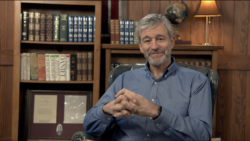
“Where is he who has been born king of the Jews? For we saw his star when it rose and have come to worship him” (Matt 2:2).
Dear Brothers & Sisters,
Thank you for standing with us in your prayers over the year. As I’m writing this I’m recovering from a bad cold and preparing Sunday’s sermon on the wise men.
Over these weeks leading up to Christmas, many people are coming to church who normally would not come. We are taking hold of these evangelistic opportunities by looking at the birth of Jesus from the perspectives of Joseph, Mary, the Shepherds, and this coming Sunday, the wise man.
It’s so amazing to think how God in his sovereignty used the wise men to announce to the political leaders that the Messiah had come. In the Bible text, we meet 4 different responses to the birth of Christ.
First, we read that Herod was troubled by the news (Matt 2:3). As half an Idumean, he was not a legitimate king and felt threatened and tried to get rid of Jesus (Matt 2:16-18). Similarly, all humans in their independence want to be their own kings. Mankind does not want to submit to God’s good rule but have all through sin rebelled against him. As I read the news today, I was reminded how the world is increasingly viewing Jesus as a threat. A Lutheran foundation that has been running a Christian school for 60 years here in Sweden was denied the ability to take responsibility for a new school because they have a classical view of the Bible. The director for the Swedish Schools Inspectorate pointed out that to operate a school with the view of the Bible that Christ and the apostles expressed is not compatible with the Swedish school law. This gives an indication that it’s going to be more and more offensive to follow Jesus in this country.
The second response to the news of the birth of Christ comes from the whole of Jerusalem. They were troubled with Herod, most probably not in the same way as he was but because the report of the Messiah was a threat to their calm. A paranoid king (who had killed his wife and two sons and ordered that several hundred Jewish leaders would be killed on his death day) made them uneasy, and they were afraid that Jesus would disturb their calm and daily lives. When the gospel is being preached, there will be strong reactions, and a sword will go through families (Matt 10:34-37). But ultimately people will be troubled because they will have to appear before Jesus on the day of judgment for their sins. This second response is quite characteristic of Sweden with its indifference and the concept of “lagom” (which can be translated moderate or just enough). People generally don’t want to have their lives disturbed. Nevertheless, we give thanks for several people whom the Lord has recently brought to himself in this land of indifference.
The third response comes from the religious leaders, the chief priest, and the scribes. When they heard the news of the newborn king, the Messiah, they could tell where he was to be born (in Bethlehem), and that he would be a shepherd for his people. Despite their knowledge, they did not run there to welcome and worship him but remained in their unbelief. This is another type of indifference that we can find among professing Christians who can give the right answers. This is a warning for all of us. Is our faith just head knowledge or have our lives been transformed by the gospel? Has it led to a lifestyle in worship with our words and deeds? Pray for Sweden – for an awakening to the gospel and that will lead to faith and repentance among nominal Christians.
This leads us to the fourth response, the wise men. They knew much less than the religious leaders, but they acted on what they knew. In God’s sovereignty, he revealed to them that the king of the Jews had been born. They sacrificed time, safety, and riches to come to worship the newborn king. They represent those who act based on what they know. They did not feel threatened, nor were they afraid of losing their calm or being ignorant to what they knew, but they acted based on what they did know.
Brothers and sisters, how much more do we know! How many more reasons do we have to respond to our Lord, King, and Savior who lived the life we could not live, died the death we deserve to die, and rose so that we can be raised with him. May this truth inspire us to worship our king and go and tell the great news of him. “Oh come let us adore him, Christ the Lord.”



